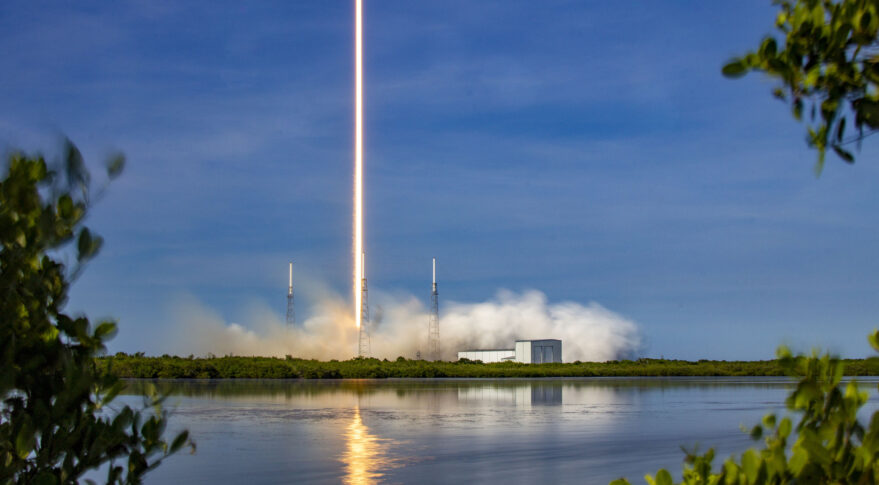TAMPA, Fla. — Egyptian operator NileSat’s latest communications satellite is ready to move to its final orbit after clearing health checks following its June 8 SpaceX launch, according to the spacecraft’s prime contractor.
The roughly 4,000-kilogram Nilesat 301 satellite will use onboard chemical propulsion to start its journey within the next couple of days, Sandrine Bielecki, spokesperson for Franco-Italian manufacturer Thales Alenia Space, said June 9.
It will likely take about a month for Nilesat 301 to reach its geostationary orbit slot at 7 degrees west, complete further tests and then enter commercial service to expand Nilesat’s African coverage.
SpaceX launched Nilesat 301 to geosynchronous transfer orbit with a Falcon 9 rocket at 5:04 p.m. Eastern June 9 from Space Launch Complex 40, located at Florida’s Cape Canaveral Space Force Station.
Shortly after launch, the rocket’s first stage landed on SpaceX’s drone ship in the Atlantic Ocean for reuse, marking the 116th time the company has successfully landed a first stage.
The booster has previously supported six earlier SpaceX launches, including two missions to the International Space Station and satellites for GPS navigation and Starlink broadband.
Based on Thales Alenia Space’s Spacebus 4000-B2 platform, Nilesat 301 carries Ku-band transponders for TV broadcasting and Ka-band capacity for internet services.
The satellite has a projected 15-year operational lifetime and will eventually replace the Thales Alenia Space-built Nilesat 201, which the Egyptian company expects will run out of fuel in 2028 after its launch in 2010.
In addition to covering the Middle East and North Africa (MENA) regions that Nilesat already serves with Nilesat 201 and other satellites it leases, the company said Nilesat 301 expands its reach into new markets in southern Africa and the Nile River basin.
Nilesat said Nilesat 301 also supplements connectivity services across Egypt and other countries along the Nile provided by Tiba 1, the Egyptian government’s first satellite that launched in 2019.

